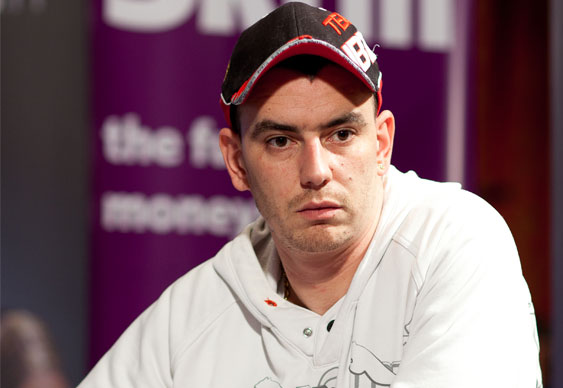Taking the Fifth
Monday, 1 April 2013
Stephen Bartley examines the curious and strangely irrelevant phenomenon of the fifth-place finisher.
EPT Deauville presented an unusual situation, certainly for those of us who have reported the tour for many years. Who, exactly, was going to finish fifth?
The Deauville final was made up of almost entirely unknown players, the exception being Jeffrey Hakim, a soft-spoken and thoughtful player from Lebanon, who would bust in eighth place, leaving the other seven to try to outwit each other. But did any of them have the nous to outwit anybody? And what is so relevant about fifth place anyway?
Fifth place, has, over the years, become more than just a position; it is a philosophy, a label alongside “rock” or “LAG”. These players who “take the fifth” are their own breed and it’s time their pedigree was examined closely.
Unlike some players, who will use a degree of sophistication to put doubt into the mind of their opponents, the fifth-taker is quite simple to pick out. He’s usually a man and his mere presence towards the business-end of a tournament leads you to ask yourself “who’s that guy?” He is the player, nondescript in appearance, who staggers you by finding hands. Somehow he get chips, sometimes even the lead. But his general anonymity suggests he’s an imposter, claiming a seat not rightfully his, like the prankster Karl Power who snuck his way onto the Manchester United team photo, and walked out to bat at Headingley.
At the final table he’s unobtrusive, tactically uncomplicated and about to cash for more money than he’s ever had in his life. He will never win, which is exactly why he will finish in fifth place – neither good, nor bad, just the limbo that lies in between.
In this regard Deauville was chock-full of fifth-place types.
It had been a different story in Normandy a year before. Olivier Rogez came close to becoming something of a poster boy for anyone with fifth place aspirations (Rogez actually departed in sixth), had he seen through his master plan of blinding himself out of a major competition.
There was something almost cavalier about Rogez’s reluctance to put a single chip into a pot. Nobody noticed at first, but then his stupor became hard to miss. He folded with increasing fanfare from the partisan crowd until, armed with just one big blind, he shoved. Or perhaps that should be “tossed”. It seemed he’d waited an unusually long time to turn over J-3. It also felt disappointing. Surely there was some way he could have folded his last blind as well, becoming the first player in the game’s history to leave in this way, thereby avoiding the indignity of moving in with nothing, for nothing and getting nothing. A place in the game’s folklore would have been guaranteed. He would be that guy, the one who deliberately blinded himself out, refusing to “play their game”. He made himself €155,000 doing that.

Rogez followed a long line of esteemed mid-place finishers; names like Lucasz Plichta (Kyiv), Bahadir Kilickeser (Berlin), Samuel Rodriguez (Barcelona) and Diego Gomez (Prague). What’s interesting is that in the run up to the final they have had to demonstrate at least some proficiency – you cannot fluke your way to a final table. But it’s an aptitude ditched during the pre-match interview, as if they knew that, what with their avant-garde playing style, it’s financially irresponsible at this stage to continue playing hands. This defiance keeps the breed strong.
Remember, it’s not actually about finishing fifth. The likes of Arnaud Mattern, Mike McDonald and Michael Martin have busted in the same spot, none of whom would fit the mundane description. But fifth place is a playing philosophy, a style undocumented in the great tomes of our generation, a method that has little regard for conventional genius – no three-betting, no c-betting and certainly no blind stealing. Such vulgarity would be beneath them.
Fifth place eventually went to Franck Kalfon, a Frenchman who played the entire tournament oblivious to the antics of the EPT Live commentators who preferred to think of him as a “special agent Franck Kalfon”, inventing for him a full fictional biography and theme tune. Perhaps this marked Kalfon out as the archetypal fifth-place finisher – so anonymous that people preferred to accept the entirely fictional alter ego in his place.
So next time you want coverage from an EPT event, or any event for that matter, put this information to good use. Remember, you’re looking for the guy going deep who you swear you’d never noticed was there before. You won’t remember having seen him play a hand and his career prize money will amount to a couple of min-cashes in his local casino. And then, just as you start to recognise him, he disappears, carrying a cheque for more money than he’s ever won in his life.